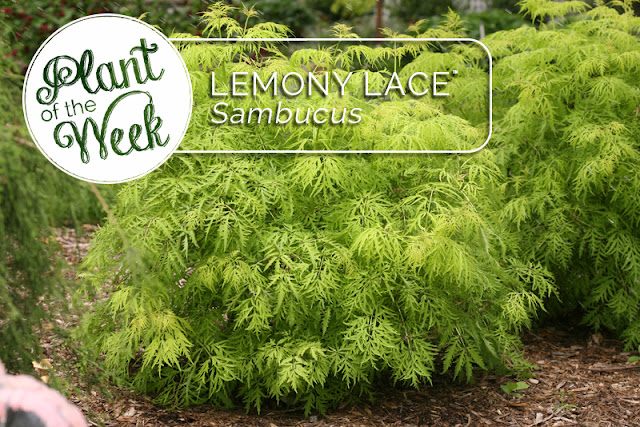Lemony Lace elderberry grows 3-5' tall and wide and is hardy to USDA Zone 3. It will be happiest in cooler climates, where it will grow in full sun or partial shade. As you get to the more southern end of its range (AHS 7) it will appreciate some light shade.
 |
| Lemony Lace elderberry has improved sunburn resistance over other golden varieties. |
Sambucus
Not to be confused with Sambuca, which has its own charms.Sambucus is also known as elderberry. Many of us have wild elderberry plants growing near us and marvel at the transformation of a weedy ditch plant into a seductive garden star. Those clever plant breeders!
Sambucus nigra produces blue or black fruit in late summer that may be used for jelly or juice. Wine is a possibility, although you didn't hear it from me. The flowers are also edible: use them for fritters or make a refreshing (and non-alcoholic) cordial.
Our Black Lace™ elderberry is a S. nigra, and while it was selected for its ornamental appeal, it does produce a good supply of fruit.
For serious fruit production, consider S. canadensis 'Adams'. There is some discussion among taxonomists that canadensis is now a subspecies of nigra, but I know better than to get into a taxonomy cage fight.
Lemony Lace elderberry is a Sambucus racemosa, or red elderberry. The bright red fruit is appealing but not considered edible. In theory you can eat it after boiling, but I think you'd need to be pretty hungry to try it.
If you really want to up the ornamental appeal of your elderberry offerings, check out our new variegated variety, Instant Karma™ Sambucus nigra. It wasn't selected for its fruit production but will produce berries, especially if planted near another S. nigra variety.
Plant of the Week is written by Jane Beggs-Joles.

